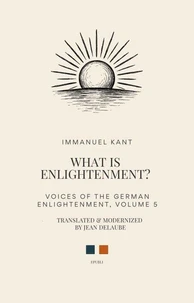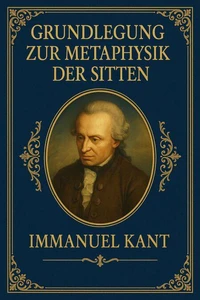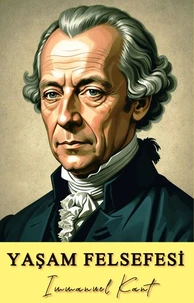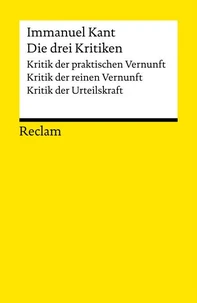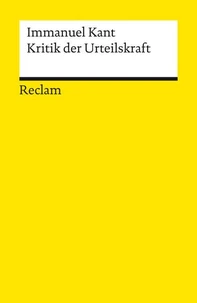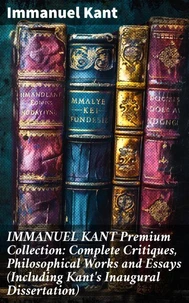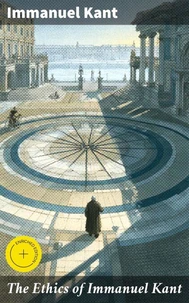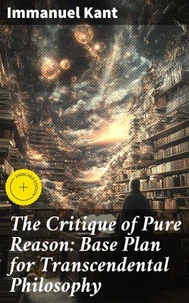The Ethics of Immanuel Kant. Enriched edition. Exploring Kant's Deontological Ethics and the Categorical Imperative
Par : , , ,Formats :
Disponible dans votre compte client Decitre ou Furet du Nord dès validation de votre commande. Le format ePub est :
- Compatible avec une lecture sur My Vivlio (smartphone, tablette, ordinateur)
- Compatible avec une lecture sur liseuses Vivlio
- Pour les liseuses autres que Vivlio, vous devez utiliser le logiciel Adobe Digital Edition. Non compatible avec la lecture sur les liseuses Kindle, Remarkable et Sony
 , qui est-ce ?
, qui est-ce ?Notre partenaire de plateforme de lecture numérique où vous retrouverez l'ensemble de vos ebooks gratuitement
Pour en savoir plus sur nos ebooks, consultez notre aide en ligne ici
- Nombre de pages805
- FormatePub
- ISBN859-65--4780506-9
- EAN8596547805069
- Date de parution09/01/2024
- Protection num.Digital Watermarking
- Taille1 Mo
- Infos supplémentairesepub
- ÉditeurGOOD PRESS
Résumé
In "The Ethics of Immanuel Kant, " the philosopher presents a rigorous exploration of moral philosophy rooted in the principles of duty and the categorical imperative. Kant meticulously delineates a framework that prioritizes rationality and autonomy, positioning ethics not merely as a series of prescribed morals but as an imperative grounded in reason. His literary style is characterized by precision and a systematic approach, as he engages with the works of his predecessors and contemporaries to refine his philosophical stance.
The text stands as a pivotal work in the Enlightenment tradition, inviting readers to contemplate the universality of ethical laws applicable to all rational beings. Immanuel Kant (1724-1804), a central figure in modern philosophy, was profoundly influenced by the tumultuous political landscape of his time, alongside the emerging scientific thought. His experiences in the Prussian Enlightenment and the struggles between rationalism and empiricism served as a backdrop that inspired his inquiry.
These intellectual currents informed his quest for a foundational moral philosophy that transcends empirical inclinations, leading to the formulation of his ethical theories. Readers seeking to understand the critical underpinnings of modern ethical thought will find "The Ethics of Immanuel Kant" an indispensable text. Kant'Äôs work remains vital in contemporary moral discourse, fostering an understanding of the importance of reason in ethical deliberations.
It is a profound invitation to engage with the philosophical underpinnings of morality and the ongoing quest for a rational ethical framework.
The text stands as a pivotal work in the Enlightenment tradition, inviting readers to contemplate the universality of ethical laws applicable to all rational beings. Immanuel Kant (1724-1804), a central figure in modern philosophy, was profoundly influenced by the tumultuous political landscape of his time, alongside the emerging scientific thought. His experiences in the Prussian Enlightenment and the struggles between rationalism and empiricism served as a backdrop that inspired his inquiry.
These intellectual currents informed his quest for a foundational moral philosophy that transcends empirical inclinations, leading to the formulation of his ethical theories. Readers seeking to understand the critical underpinnings of modern ethical thought will find "The Ethics of Immanuel Kant" an indispensable text. Kant'Äôs work remains vital in contemporary moral discourse, fostering an understanding of the importance of reason in ethical deliberations.
It is a profound invitation to engage with the philosophical underpinnings of morality and the ongoing quest for a rational ethical framework.
In "The Ethics of Immanuel Kant, " the philosopher presents a rigorous exploration of moral philosophy rooted in the principles of duty and the categorical imperative. Kant meticulously delineates a framework that prioritizes rationality and autonomy, positioning ethics not merely as a series of prescribed morals but as an imperative grounded in reason. His literary style is characterized by precision and a systematic approach, as he engages with the works of his predecessors and contemporaries to refine his philosophical stance.
The text stands as a pivotal work in the Enlightenment tradition, inviting readers to contemplate the universality of ethical laws applicable to all rational beings. Immanuel Kant (1724-1804), a central figure in modern philosophy, was profoundly influenced by the tumultuous political landscape of his time, alongside the emerging scientific thought. His experiences in the Prussian Enlightenment and the struggles between rationalism and empiricism served as a backdrop that inspired his inquiry.
These intellectual currents informed his quest for a foundational moral philosophy that transcends empirical inclinations, leading to the formulation of his ethical theories. Readers seeking to understand the critical underpinnings of modern ethical thought will find "The Ethics of Immanuel Kant" an indispensable text. Kant'Äôs work remains vital in contemporary moral discourse, fostering an understanding of the importance of reason in ethical deliberations.
It is a profound invitation to engage with the philosophical underpinnings of morality and the ongoing quest for a rational ethical framework.
The text stands as a pivotal work in the Enlightenment tradition, inviting readers to contemplate the universality of ethical laws applicable to all rational beings. Immanuel Kant (1724-1804), a central figure in modern philosophy, was profoundly influenced by the tumultuous political landscape of his time, alongside the emerging scientific thought. His experiences in the Prussian Enlightenment and the struggles between rationalism and empiricism served as a backdrop that inspired his inquiry.
These intellectual currents informed his quest for a foundational moral philosophy that transcends empirical inclinations, leading to the formulation of his ethical theories. Readers seeking to understand the critical underpinnings of modern ethical thought will find "The Ethics of Immanuel Kant" an indispensable text. Kant'Äôs work remains vital in contemporary moral discourse, fostering an understanding of the importance of reason in ethical deliberations.
It is a profound invitation to engage with the philosophical underpinnings of morality and the ongoing quest for a rational ethical framework.


